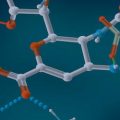随着PTE考生对PTE口语和PTE听力的重视,大家口语和听力的分数得到极大提高,但是PTE阅读渐渐成为
考生们新的难题。墨尔本悉尼文波PTE特别为PTE考生们挑选了适合练习PTE阅读的文章,主题,内容,长度都与PTE阅读题中的文章相似。激活学过的词汇,更新新的词汇,提高阅读速度,全面提升自己的阅读能力。
Scientists usually order laboratory mice online, but immunologist David Masopust went to more trouble. While doing research years ago at Emory University, he drove to a barn several hours away to trap the rodents himself. He suspected that commercially provided lab mice were missing some key immune cells because they had inexperienced immune systems—a result of being raised in extremely hygienic facilities. Masopust, now a professor at the University of Minnesota, went on to formally test his suspicion over the course of a decade and has found that it was correct: lab mice used by the scientific community and pharmaceutical world to test drugs and vaccines for human diseases are in some ways poor models of the human adult immune system.
As published this spring in the journal Nature, Masopust and his colleagues discovered that mice raised in germ-free facilities had immune systems that looked more like those of human babies than adults, as judged by the types of immune cells present and the genes that were active in those cells. For example, memory CD8+ T cells that serve as first responders to infection were virtually undetectable in adult lab mice but clearly present in barn mice and mice from pet stores. “We’ve ‘known’ this, but it’s good to finally see it proven,” says Purvesh Khatri, a computational systems immunologist at Stanford University who was not involved in the study.
immunologist 免疫学者
rodent 啮齿动物
hygienic 卫生的
pharmaceutical 制药(学)的





